
Strained eyes, dry eyes, tired eyes, headaches.. Do you ever think about the issues the computer screens we spend so much of our days on can cause us?
Think about how much time you spend gazing into a monitor or phone screen. Now that Apple tells you your screen time, you don’t have to guess.. It’s a little scary how much time we spend looking at our phones alone.
If you have a standard 9-5 my guess is you probably stare at a computer screen 2-3 times as much as your phone.
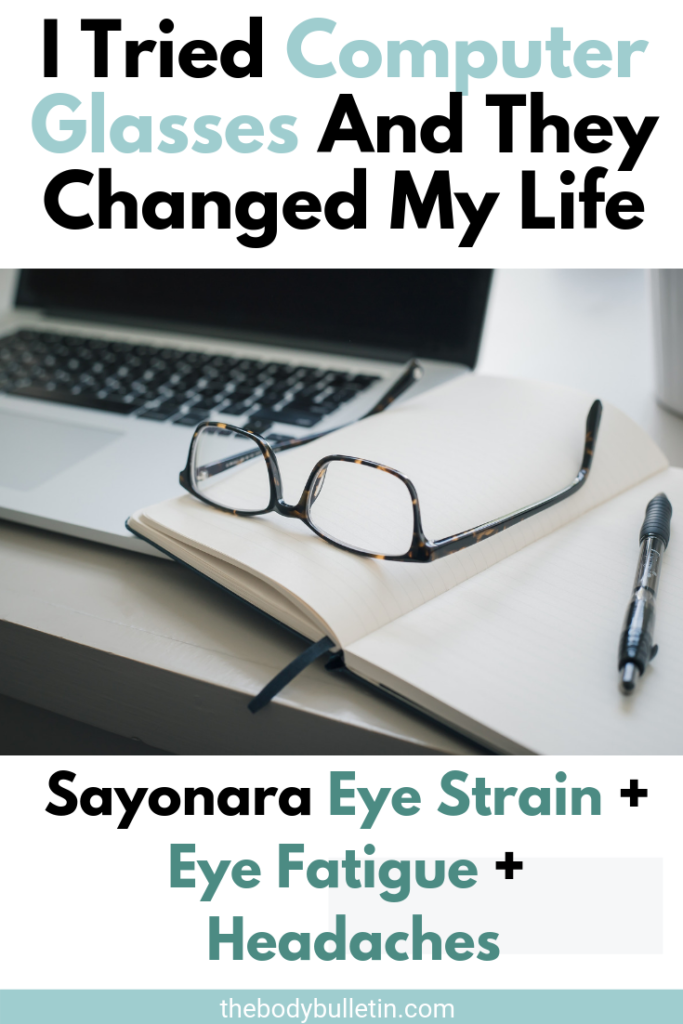
Disclosure: The post may contain affiliate links. This means, at no additional cost to you I may make a small commission if you click and make a purchase.
Have you ever wondered if that affects you?
I’ve got your typical desk job, staring into a computer screen day in and day out. I’ve had terrible vision my entire life until I finally got LASIK in 2013. I always thought any dryness was due to getting LASIK. While it is documented that dryness is a result from LASIK, once your eyes heal, generally the dryness shouldn’t be too big of a problem, or at the very least, should be manageable. However, in my case, dry eye was quite the burden. I was using eye drops 5-6 times a day.
Related: The Bedtime Routine That Transformed My Sleep
A couple years into my 9-5 I started to notice my eyes would get very dry, feel fatigued, and strained by the end of the day. Sometimes this would lead to a dreaded headache. I was a slave to eye drops (these saved me) and ibuprofen in addition to taking computer breaks.
From years of yoga, I’ve become very in-tune with my body. My mind-body connection has strengthened over time and I’m keenly aware of when something doesn’t feel right (a blessing and a curse at times).
In the case of my eyes, I knew something was up with them being so fatigued by the end of each work day. Round the clock eye drop rotations just weren’t cutting it.
I was beginning to understand that “eye fatigue” was real …and shitty. And the headaches were a nuisance to boot.
Turns out my experience is well documented with a phenomena called Computer Vision Syndrome. With CVS one can experience a multitude of eye-related issues such as:
- Eyestrain
- Dry eye
- Irritation
- Tired Eyes (eye fatigue)
- Blurred vision
- Double vision
- Redness
In talking to coworkers, I heard about these things called computer glasses. Studies have shown even just one hour a day or more of screen time can benefit from computer eye glasses. They block the blue light screens emit. These special glasses are designed to reduce the symptoms above that can cause Computer Vision Syndrome. Yipee!
So of course, me with my eye problems, I had to give them a go.
I’ll be honest, at first I was skeptical. My B.S. meter was going off. How could a light from a monitor be causing all of these issues?
Do the computer glasses really make that much of a difference?
When I first started wearing the glasses, I didn’t notice a difference immediately. It took a few days to start to notice the subtleness of my eyes being less dry and tired at the end of the day. In fact, I noticed how much they did help because I stopped wearing them. Just out of habit, I forgot to put them on for a few days.
After not wearing blue light blocking glasses for a few days I noticed how dry, fatigued, and strained my eyes were. It dawned on me, I hadn’t thought about eye strain, fatigue, or dryness for a few days while I was wearing the glasses. The glasses must have made a difference! Turns out it’s not just hocus pocus after all.
I now wear my blue-light blocking glasses full-time at my computer.
Nowadays, after just a few minutes of computer work, if I haven’t been wearing my computer glasses, I can feel an odd sensitivity in my eyes. Not wearing the glasses creates a greater need to blink, a light tingle, or subtle burning sensation, and dryness.
It takes me a minute to notice how uncomfortable my eyes feel, but as soon as I realize what’s happening, I put on my computer glasses and it goes away.
Initially I thought it was just me, but after talking with others, they had similar experiences. They had the same reaction to the computer screen without their computer glasses as well.
Facts on Blue Light AKA HEV Light
- Blue light is a visible part of the light spectrum
- Blue light is visible light also known as HEV – High Energy Visible
- Sunlight contains blue light
- Some blue light exposure is essential for good health. Research has shown that high-energy visible light boosts alertness, helps memory and cognitive function and elevates mood
- HEV is what makes the sky look blue
- Visible blue light passes through the cornea and lens and reaches the retina, unlike UV rays
- Blue light may increase the risk of developing macular degeneration
- Much of the white light therapy to treat Seasonal Affective Disorder is blue HEV light
- Blue light plays an important role regulating circadian rhythm. HEV light during the daytime promotes wakefulness and helps maintain a natural cycle. On the flip side, too much blue light at night can disrupt our natural sleep cycles
Macular Degeneration
A medical condition which may result in blurred or no vision in the center of the visual field.
☝AKA my main concern.
Evidence suggest an increased risk of macular degeneration in animals exposed to blue light. Now animals have different eyes than humans, which should be taken into consideration. But still, why would you want to risk it?
The rates of macular degeneration are on the rise and macular degeneration runs in my family, also being light skinned/light eyed doesn’t help my case.
That is why I’ve decided to take preventative measures to protect my precious eyes. Computer glasses for the win!
Have you ever experienced eye strain, fatigue or dryness? Did computer glasses help you? Let me know in the comments below.
Disclaimer: All opinions are my own. This post is intended for educational, inspirational, or entertainment purposes only. I am not a doctor, the content on this blog is not intended to be substituted for medical advice.
References:
Blehm, Clayton, et al. “Computer Vision Syndrome: A Review.” NeuroImage, Academic Press, 23 Apr. 2005, www.sciencedirect.com/science/article/pii/S0039625705000093#sec2.
Feigin, A.A., et al. “Scopus Preview.” Scopus Preview – Scopus – Welcome to Scopus, Vestnik Oftalmologii, Mar. 1998, www.scopus.com/record/display.uri?eid=2-s2.0-0032019969&origin=inward&txGid=4310bdf8415d73b543202e6e25b50c75.
http://www.bladeneyecenter.com/doctors-blog/2018/1/17/whats-the-deal-with-blue-light
S. Van der Lely, S. Frey, C. Garbazza, A. Wirz-Justice, O.G. Jenni, R.Steiner, et al.Blue blocker glasses as a countermeasure for alerting effects of evening light-emitting diode screen exposure in male teenagers https://www.sciencedirect.com/science/article/pii/S1054139X14003243#!
J. Adolesc. Health, 56 (1) (2015)
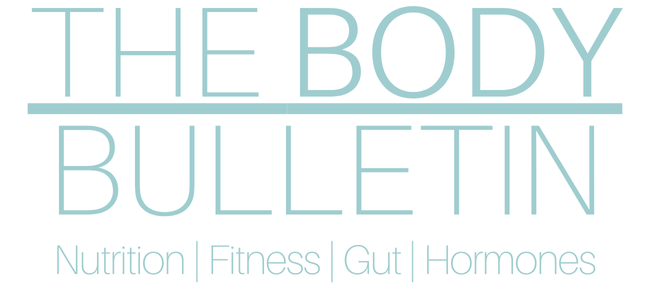



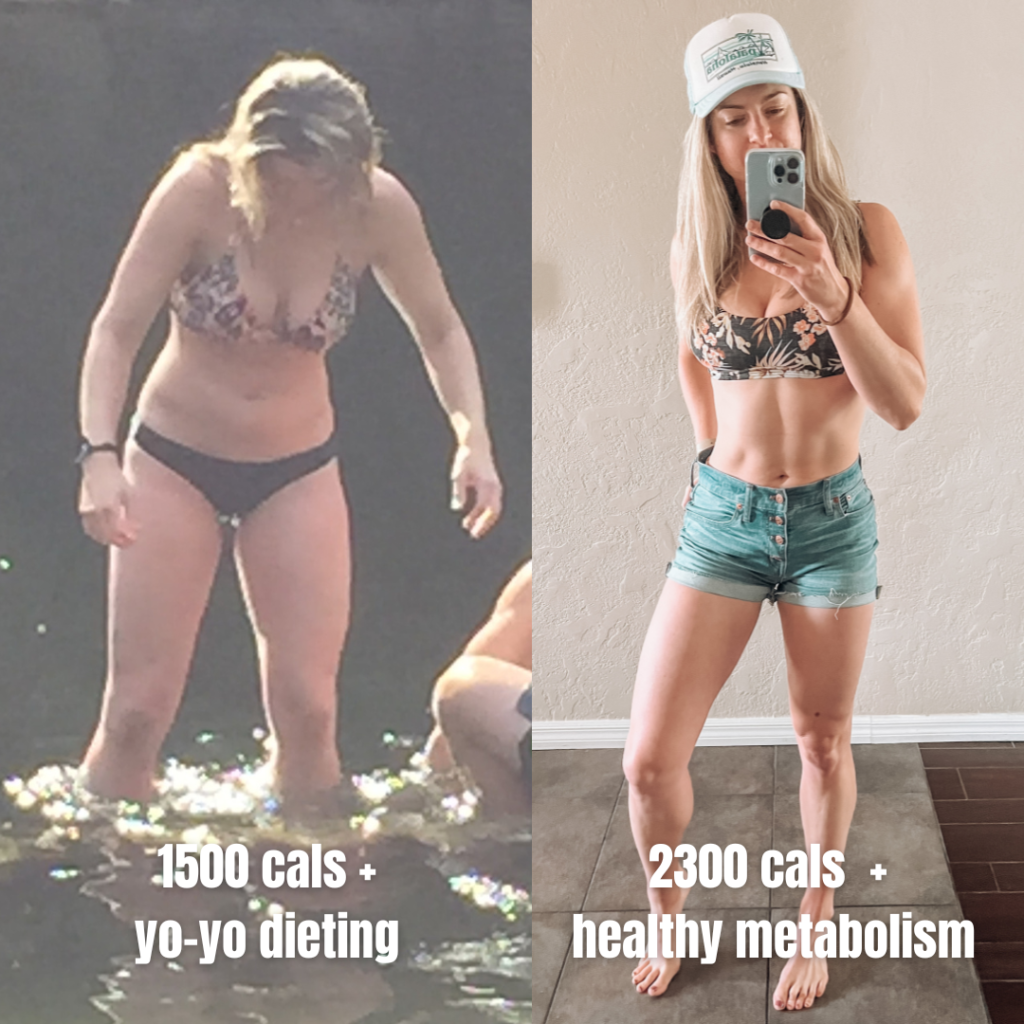

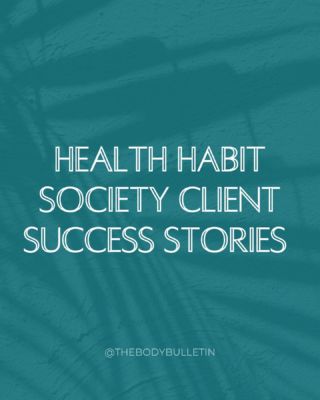




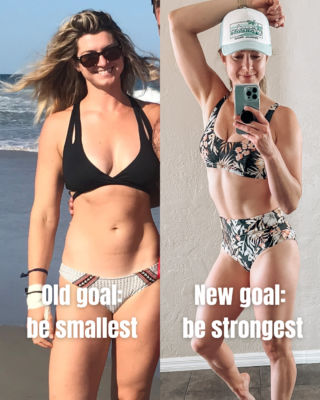

Leave a Reply